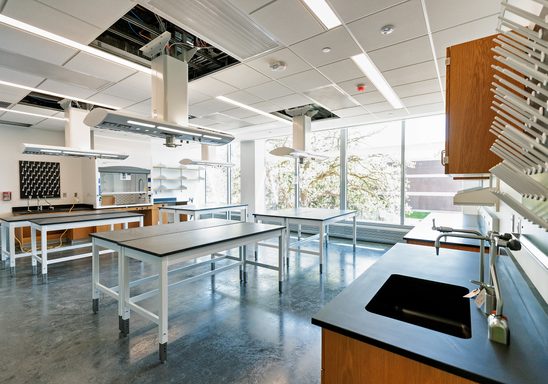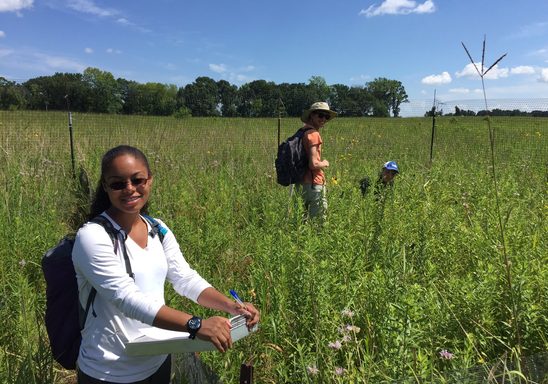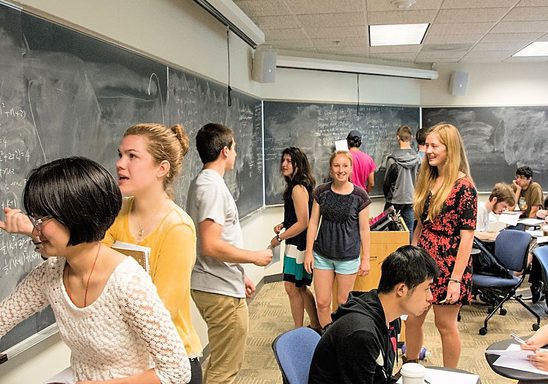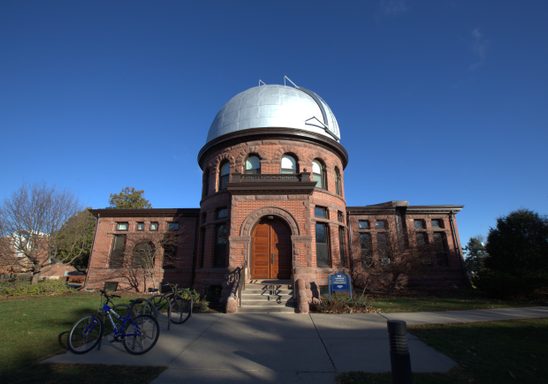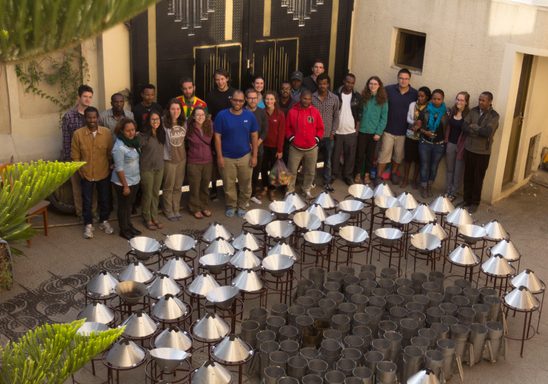In an era of remarkable scientific creativity and discovery, we recognize that training in the latest scientific knowledge is necessary, but not sufficient, to prepare future leaders in science and medicine. We must also prepare students to make intellectual connections across contexts, to adapt ideas to new situations, and to address ill-structured problems in multidisciplinary teams. We must prepare them to be integrative learners.
The science and math faculty at Carleton College aspire to help students learn to transfer, apply, and synthesize their classroom learning into a coherent and usable body of knowledge. We provide multiple opportunities for students to practice using this knowledge in research, teaching, and real-world problem solving.
Carleton’s Integrated Math & Science Center
Carleton has undertook an ambitious construction project to create an Integrated Science Center to foster interdisciplinary and integrated learning. The first phase of construction was the Evelyn M. Anderson Hall which officially opened to the public on September 16, 2019.
Anderson Hall houses laboratory spaces for Archaeology, Geology, Chemistry, and Physics & Astronomy. In addition, offices for Chemistry and Geology faculty are located on the second and third floors of the office block of this building.
The entire facility is designed to have a net zero impact on energy consumption, and Carleton’s new geothermal energy plant is housed in the sub-basement of Anderson Hall. In addition, the second floor of Hulings Hall, which houses the relocated Biology department office, has been renovated and the Hulings HVAC system has been replaced. The Dougherty Atrium in Anderson Hall seamlessly connects with Hulings Hall on the first and second levels.
The second phase of the project involved renovating about 80% of Olin Hall. Olin Hall houses Psychology, Cognitive Science, Computer Science, and the GIS lab, as well as offices for Biology, Physics, and Astronomy. Renovations on the first floor of Hulings Hall, the basement and third floors in Hulings were completed in fall 2020.
Find more information, including floor plans and renderings of the integrated science center.
